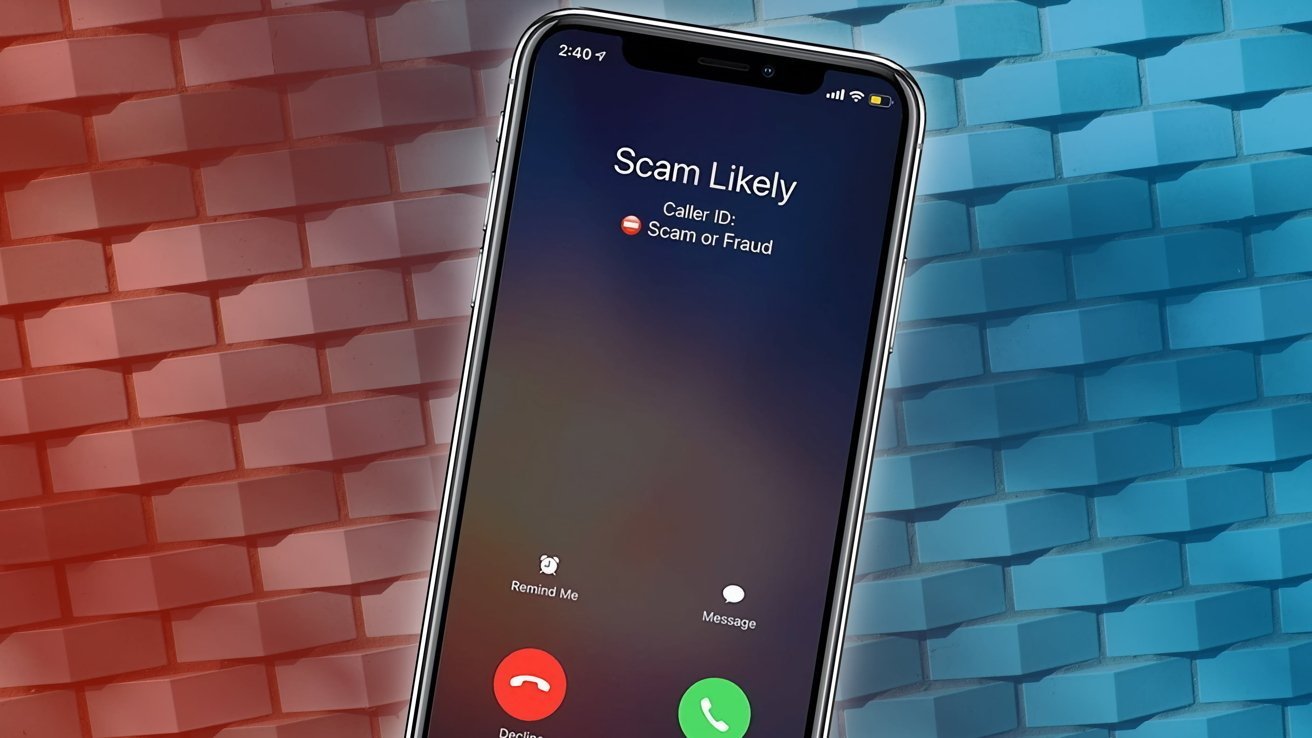A GoFundMe account is accepting donations to help a Wichita, Kansas woman who fell for a common online scam that began with a text message to her iPhone.
Shawna Perdue lost over $5,500 after falling for a ploy from scammers pretending to be "Apple Security." According to local news station KWCH, she first received a text message claiming that her Apple ID had been used to make a purchase, and if she did not make that purchase to call a certain number.
This is a con that works by volume — countless people will have received the same text. Even though only a small proportion will ring the number provided, it's enough that the scam is profitable.
The best thing to do is to ignore the text. Failing that, while there shouldn't be any doubt that this is not Apple, users could Google the phone number and see whether it really is Apple.
It's possible to spoof numbers, however. So again, the best option is to ignore the text — because unless a user is a business or has requested a support call, Apple does not phone or text people.
How Perdue lost her money
Perdue rang the number, and that's when the con started in earnest. She spoke with someone who convinced her that hackers would be using her Apple ID in order to drain her bank account.
AppleInsider readers would already be suspicious, but scammers are very well practiced at being exceptionally convincing. What this man said was sufficient to persuade Perdue to do what he said, and transfer thousands of dollars from her bank to a Venmo card.
Once she had done that, she was told to use the card to buy gift cards totalling $3,500 from two local Home Depot stores. This should have been another warning — no company will ask anyone to buy gift cards.
It's so suspicious-sounding that it's hard to believe it works, and yet it does. It works so very well that Apple has a whole support page called About Gift Card Scams.
It certainly worked in Perdue's case, and unfortunately because she made these purchases voluntarily and then revealed the gift card numbers to the scammers, her bank could not refund her the money lost.
She did file reports with the Wichita Police Department and the Federal Trade Commission. But it was following a report on a local television station, that a GoFundMe page was set up to help her recover.
Community comes together to help
At present, the GoFundMe effort has raised some $4,840 from 51 donations. Rhonda Chadwick, Perdue's daughter, says that she set the amount at $5,500 per GoFundMe guidance, but added in a note that her actual loss was "a bit more than that."
"She is broken inside after this awful scam. She's mad, but mostly at herself," Chadwick said in her post on GoFundMe. "It's breaking my heart to see my strong, independent mom go through this."
Chadwick wrote on the GoFundMe page to thank those who have donated, saying that "you are definitely helping to restore my Mom's faith in people and restore her spiritual belief. Your thoughts, prayers and gifts, though monetary, are priceless to us," thanking those who have donated so far.
Protecting friends and family from scams
Everyone knows someone — a friend or family member — who may be a bit naive when it comes to sources of information coming to people from text messages, emails, and online pop-ups or fake websites. It's important to help protect them from such traps and scams.
One of the best ways to help friends and relatives who may be vulnerable to alarming text or online messages is to share stories like the one from Perdue. General advice to reach out to friends or family if they receive an alarming notification can act as a "reality check."
Broadly speaking, notifications of any kind that encourage people to act urgently to respond to a perceived threat are certain to be online scams. People tend to make rash decisions when in a panicked state of mind, and scammers prey on that natural reaction.
Reach out to friends and family who might be vulnerable to such online threats, and if possible make yourself a "fact checker" if they ever receive claims they are infected, hacked, or under some kind of threat. The psychological damage done by falling for a scam can be worse than the money lost.
With similar scams centered on the use of Apple Gift Cards, Apple also advises victims to report their experience to the company.
 Charles Martin
Charles Martin


 Christine McKee
Christine McKee
 William Gallagher
William Gallagher
 Thomas Sibilly
Thomas Sibilly
 Andrew O'Hara
Andrew O'Hara
 Amber Neely
Amber Neely
 Marko Zivkovic
Marko Zivkovic
 Malcolm Owen
Malcolm Owen
 William Gallagher and Mike Wuerthele
William Gallagher and Mike Wuerthele








1 Comment
There ought to be a service that teams-up every senior with a gen-Z. Whenever the old-timer gets a call from a “bank” or Apple “security,” the call is automatically transferred to the gen-Zer, who listens to the pitch, and then tells the caller to p*ss off, if it’s a scam.